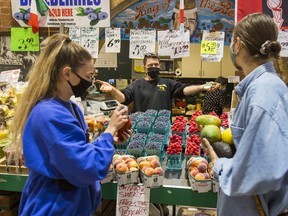
Interest Rates Aren’t the Only Weapon in Global Inflation Fight
The article discusses various governments’ efforts to combat rising inflation caused by the COVID-19 pandemic. The measures taken include:
- Price controls: Some countries, such as Argentina and Brazil, have implemented price freezes or caps on certain items.
- Supply chain management: Governments are working to alleviate bottlenecks in supply chains, particularly in the United States.
- Food production and distribution: Countries like Nigeria and Russia are supporting farmers with cheap loans to increase output and reduce reliance on imports.
- State intervention in markets: China is considering intervention in a market that has "completely deviated from the fundamentals of supply and demand."
- Long-term plans for strategic industries: Europe’s rulers aim to produce more semiconductors domestically, recognizing "no alternatives to state intervention" if this goal is to be met.
The article highlights the challenges of implementing effective policies to combat inflation, including:
- Whack-a-mole effect: Measures taken in one country can limit supplies and boost prices elsewhere.
- Unorthodox policies: Some governments are resorting to unconventional measures, such as price freezes or state-owned distribution companies, which may not be effective in the long run.
The article concludes by noting that interest rates are not the only tool available to combat inflation, and that governments must consider a range of measures to address the complex causes of rising prices.


